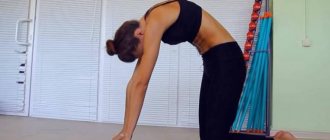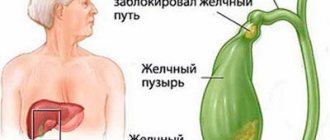For an athlete, his health and well-being are important—it affects the results of training and competitions. Abdominal cramps, nausea, heartburn and other unpleasant symptoms can occur at the most inopportune moment. What causes this and how to avoid it? Let's figure it out.
Specialists in the field of sports medicine indicate that almost half of athletes experience minor problems with the gastrointestinal tract during training. Common symptoms include:
- nausea
- heartburn
- indigestion
- intestinal disorder
- irritable bowel syndrome.
Digestive problems are specific to different sports. For example, fans of running training most often consult a doctor about disorders of the digestive system. The occurrence of unpleasant gastrointestinal symptoms while running usually does not indicate significant health risks, but such an unpleasant experience can reduce motivation to exercise.
The mechanism of development of the problem
Different types of training actively load certain muscle groups, for example, when running, the quadriceps are actively loaded. A kind of competition arises between muscles and internal organs for blood flow. Since the needs of muscles for oxygen and nutrients are higher than those of internal organs, during intense running up to 80% of the blood flow can be directed to the legs. As a result, the digestive system has fewer resources to digest and absorb food and water consumed before and during exercise. The stomach gives in, and the pizza that you ate half an hour before training may “ask to go out.”
The risk of unpleasant consequences increases if you eat food immediately before training. Everyone chooses the right time for themselves: some can comfortably exercise a quarter of an hour after eating, while others should eat at least 2 hours before training. The higher the intensity of the load, the more blood is redirected from the digestive system to the muscles, which also affects the occurrence of pain in the abdomen.
Does the above mean you need to give up intense training? Absolutely not, you just need to take into account a number of important recommendations to reduce the risks of problems with the digestive tract. In general, there is a lot of individuality in this issue; you need to learn to feel your body and monitor its reaction to different types of stress and food. Below are general guidelines for avoiding problems common to the most popular sports.
Preventive measures against nausea
To avoid nausea during and after training, you must follow these rules:
- Avoid overtraining, increase the load gradually so that the body has time to adapt to it. To monitor your progress, keep a training diary.
- Organize your diet so that the break between a heavy meal and training is at least 2 hours. And if after this you continue to feel sick during training, increase this period to 3-4 hours with a quick carbohydrate snack before classes, take digestive enzymes.
- Do not drink a lot of water before exercise; during training, drink little by little, in small sips.
- Do not use such dangerous, and also ineffective, weight loss methods as a salt-free diet, taking diuretics, or using thermal suits.
- Monitor how you feel after taking sports supplements. Often athletes feel sick during training from pre-workout complexes, fat burners and thermogenics.
- Learn to breathe correctly and evenly when doing exercises.
- Monitor your blood pressure and blood sugar levels.
- Use athletic belts with caution.
- Do not allow your body to overheat during training.
If you feel nauseous during a workout, stop immediately, sit down, or better yet, lie down, swallow a few glucose tablets, and drink salted water. If nausea does not go away, and you also feel weak, dizzy, or cold sweat, then stop training and do not be alone. You may need emergency medical attention.
Run
Problems
The main problems when running are:
- abdominal cramps
- diarrhea
- stabbing pain in the side
Even with the gentlest running style, the impact of the feet on the ground resonates in the lower abdomen, often leading to abdominal cramps and diarrhea. That is why doctors often record these very complaints during amateur marathons. Stitching pain in the side is also a common problem among runners. They arise from the effects of gravity and additional stress on the connective tissues of the abdominal cavity.
How to fight
If abdominal cramps occur, it is necessary to ensure that a sufficient amount of blood flows to the intestines - reduce your running speed and wait until your heart rate decreases.
If diarrhea develops , it is better to look for a secluded place or a dry closet, if one is available nearby. You should always have the appropriate medication on hand during training - this will make you feel calmer.
If you have stabbing pain in your side, you need to slow down your running. Gently tilting your torso to the side, in the direction opposite to the pain, can also help.
How to prevent
- Consume sufficient fluid. Every 15–20 minutes of training you need to drink 110–170 ml of liquid. If the exercises are long, then you should alternate between drinking plain water and special drinks containing the necessary minerals, which are actively lost with sweat.
- Avoid carbonated drinks: they can cause bloating while running.
- Limit your fat and fiber intake on workout days. These types of nutrients are digested more slowly than carbohydrates and proteins, which can cause problems when exercising. Foods containing lactose (found in milk a lot), sorbitol (found in chewing gum) and caffeine also lead to changes in the digestive system that are undesirable when playing sports. Therefore, such foods should be avoided at least 4 hours before running.
The problem of feeling unwell during or after training
Before delving into the intricacies of training, which will be discussed later, let’s first find out what nausea essentially is.
If we talk about the biomechanics of the body, nausea is a purely physiological process. It is a kind of defense mechanism against poisoning. It allows you to use emergency methods to get rid of toxins that could enter the stomach with food.
Just something complicated
It is clear that at the same time a large amount of water, minerals, salts and other substances are removed. They are designed to cleanse the esophagus of remnants of toxic compounds and rinse it. It would be logical to assume that the main cause of nausea can be considered the accumulation of toxins, various toxic substances dangerous to health and life.
However, there are other options. Irritation of the mucous membranes of the intestines, stomach, lack of gastric juice, excessive accumulation of bile, all this can cause rotting of food, which also causes dizziness and nausea. The body is also able to fight blood intoxication only with the help of such unpleasant symptoms.
But often people who have not been poisoned by anything say that they simply felt ill after training or even during it. There is something in common with intoxication, but not in all cases. During sports, the body experiences high loads, which means stress. The body begins to quickly search for sources of energy and begins to burn everything that comes to its “hand.” This is often accompanied by the release of breakdown products, which work in exactly the same way as toxins from the outside. They irritate almost all body systems.
Cycling
Problems
Cyclists are most likely to experience the following types of digestive problems:
- heartburn
- indigestion
Heartburn is quite common among cyclists and is caused by leaning the body forward while riding. Cross-country bicycles are becoming increasingly popular in our country; most people have already switched to this type of cycling equipment. The design of these types of bicycles is based on a lowered handlebar and a raised saddle. Therefore, the cyclist’s body tilt is very significant; this increases pressure on the stomach and intestines, which leads to heartburn. Symptoms of indigestion include abdominal pain, heaviness and bloating. Indigestion among cyclists most often occurs due to lack of time to digest food before cycling. During physical activity, the body works to supply blood to the muscles, rather than the digestive organs, which leads to unpleasant sensations.
How to fight
If heartburn occurs, bend forward as much as possible. Ideally, you should take a short break, take a strictly vertical position, or simply walk with the bike for a few minutes. It is important not to consume water or food until your heartburn symptoms end, otherwise you risk making them worse.
Enzyme preparations that will help speed up the breakdown of food will help with indigestion Hot chamomile or mint tea will also relieve symptoms.
Prevention
- If you are prone to heartburn, then it would be a good idea to take a heartburn medication on the road. Of course, you should not overuse over-the-counter heartburn medications; they have significant side effects. If such problems occur regularly, you should contact a gastroenterologist, who will help you adjust drug treatment and give recommendations regarding nutrition and exercise regimen.
- Work on your posture while riding. Try to keep your back straight, not arched. This will reduce pressure on the internal organs. Make sure the saddle and handlebars are at the correct height. There are specific guidelines for cyclists on this issue, use them if necessary.
- Be careful with what you eat while cycling. Energy bars and sports snacks are quite popular among cyclists. Unfortunately, some people become addicted to them and consume excessive amounts of food while riding, which leads to digestive problems. If the workout lasts less than an hour, then it is better not to eat any snacks at all. When exercising for more than 60 minutes, you should consume 200 to 300 calories every hour in the form of sports drinks, bars, and snacks. This must be done, since the reserves of glycogen (“fuel” for muscles) in the body are depleted after long workouts, and the breakdown of fats does not have time to compensate for the energy needs of the athlete.
- To prevent indigestion, you should chew food thoroughly: solid food - from 30 to 40 times, soups, purees and cereals - at least 10 times. Allow enough time to eat, do not be distracted by conversations or extraneous activities. Snacking while driving also adversely affects the functioning of the gastrointestinal tract; it is better to stop and find a quiet place to eat.
Signs of overexertion: weakness after exercise
The most common cause of dizziness, nausea and even vomiting is excessive overtraining. It occurs mainly because the optimal balance between training and rest is not maintained. The body definitely needs restoration, this is an absolute fact. If it is not enough, then problems are inevitable. But how do you know that it is this and not another problem that is tormenting you? It’s very simple to find out what signs indicate an excessive load.
Symptoms of Overtraining
- At some point, working out in the gym became not a pleasure, but a real hard labor. If you no longer feel enthusiastic about going to the gym, this is an alarming symptom.
- Pain, aching muscles.
- Weakness after training, fatigue, constant feeling of loss of strength.
- Involuntary irregularities in routine, problems falling asleep, insomnia, or a constant desire to go to bed.
- Irritability, nervousness, regular feeling as if everyone around you wants to harm you, out of spite, breakdowns for no reason.
- A complete lack of effectiveness in training, a long-lasting plateau effect, a clear regression in fitness.
- Loss of appetite, general reluctance to eat.
- Loss of interest in sex as such, decreased libido, lack of menstruation in women.
- Regular or constant headache that does not go away, for which pills do not help or help for a while.
- Decreased immunity, frequent colds, ARVI.
- Tachycardia, hypertension.
- Deplorable, tired appearance, circles under the eyes, sallow skin.
The simplest diagnostic method: orthostatic test
To find out for sure whether you are wrongly blaming overtraining, you can conduct the most accessible test for everyone - measuring your pulse. The easiest way to do this is with a special heart rate monitor, but not everyone has one. Therefore, let's look at how to calculate the results without this device.
- Count your pulse per minute.
- In a calm state, count your pulse for fifteen seconds, and then simply multiply it by four.
- During load, you can start the stopwatch, count up to ten beats, and immediately turn it off. Then you need to count using the formula: 10x(60/received seconds) = pulse per minute .
But what do the results mean? It won't be difficult to figure this out either. You won’t understand anything at once, because the heart rate can fluctuate from sixty to ninety beats per minute in a calm state. Therefore, you will have to conduct a whole study, measuring this indicator regularly. Then it will be clear when a deviation from the norm occurs.
- A range from zero to twelve to fifteen strokes indicates ideal form.
- From fifteen to eighteen blows is an indicator of a poorly trained athlete.
- If the spread is up to twenty-five hits, it means your physical shape is in poor condition, and it’s time to do something about it.
- A difference of more than twenty-five beats before and after the load indicates excessive fatigue, and possibly overtraining.
Swimming
Problems
The most common problems with the digestive system in swimmers are:
- abdominal cramps
- belching
- bloating
- nausea
Some swimmers forget to exhale when diving with their heads. Having emerged, they are forced to exhale and inhale very quickly. As a result, the likelihood of involuntary swallowing of air and even water increases. Filling the stomach with air leads to belching, and swallowing water can lead to abdominal cramps.
How to fight
on your back will help get rid of nausea and abdominal cramps , since most unpleasant digestive symptoms when swimming occur while lying on your stomach. You can also try swimming for a while with your head constantly above the water, that is, without temporary immersion, as required by the standard style of swimming breaststroke, crawl and other styles.
If belching or bloating occurs, leave the pool and perform a short session of special breathing techniques. Carminative drugs will also help (if a single problem occurs), helping to reduce the formation of gases in the gastrointestinal tract and removing them from the body.
Prevention
- Practice your breathing technique. Proper technique allows you to more efficiently obtain oxygen while swimming while avoiding swallowing air and water. When you come out of the water to inhale, turn your head to the side rather than forward, this will reduce the risk of swallowing water. Underwater, do not hold your breath, but slowly exhale until your mouth reaches the surface.
- Wear a swimming cap. This is especially important when swimming in open waters; this approach reduces waves hitting the head, causing disorientation and swallowing water and air.
Causes of nausea and dizziness
Considering all of the above, we can conclude that nausea after exercise occurs due to the accumulation of toxic substances or due to intestinal irritation. However, this is not so; there are other options that often cause poor health after active, intense physical exercise.
Pressure surges
If you feel dizzy during exercise, experience tinnitus, nausea, or headache, the cause may be a sharp increase in blood pressure. It can jump due to lack of oxygen during exercise, when breathing becomes difficult, and then also fall sharply. Nausea occurs from such jumps; the body perceives the lack of air as poisoning and turns on the defense.
Therefore, it is very important to breathe correctly during strength and cardio exercises. It is not difficult to learn this, the main thing is to pay enough attention to the issue. For example, there is already material on our website on how to breathe correctly when running or doing push-ups. After training, your blood pressure returns to normal and all symptoms disappear on their own.
Excessive load on the gastrointestinal tract
Food issues today concern almost half of the world's population. Everyone wants to eat deliciously, but not gain weight, and get all the necessary vitamins, micro-macroelements, and minerals. Often, in the frantic race for proper and regular nutrition, we simply forget what time we set ourselves to train. As a result, it turns out that you have just had lunch, and twenty minutes later you are pedaling or lifting a barbell in the gym.
This is a fundamentally wrong approach, and you are definitely guaranteed to feel unwell after training. It is optimal to eat no later than one and a half to two hours before going to the gym. If something prevents you from eating on time, you can always find an alternative. For example, it’s good to eat a gainer or make a tasty and healthy protein shake.
Negative health
Often the cause of dizziness or nausea can be the fact that before playing sports you felt discomfort and did not feel well. Perhaps you ate something wrong last night and got slightly poisoned. The main symptoms passed, but became fully apparent during classes.
With colds, viral or bacterial diseases, a person may also not particularly feel the symptoms. Only under intense load do they appear in all their glory. Therefore, you shouldn’t be too scared if you vomited after feeling a slight increase in temperature last night. Perhaps the flu or acute respiratory viral infection is just starting, it’s worth going to see a therapist.
The body requires carbohydrates: lack of sugar
Many people try to lose weight and remove excess fat deposits using a variety of low-carb diets. This is a fairly effective method; for example, the keto diet implies a complete abstinence from sugar.
However, people stubbornly continue to play sports, forgetting to initially reduce the load, allowing the body to get used to it. Low blood sugar levels lead to disastrous results. The result is nausea, headaches, dark circles before the eyes and even fainting. Just reduce the intensity, at least at first, this should solve the problem.
Not enough salt and water
Often, wanting to get results right here and now, people exorbitantly overestimate their capabilities. They place excessive demands on themselves and unbearable loads. As a result, heavy sweating occurs. The body loses a lot of sodium and water through sweat. This may also make you feel nauseous.
It is not difficult to compensate for the lack of salt. Instead of regular water, which you usually drink daily, buy mineral water rich in this element. Simply drinking a glass of this mineral water before class will ensure that you have the proper sodium level and no dizziness.
Decreased blood flow to the gastric mucosa
Another fairly popular reason is improper blood flow in the mucous membranes or its sharp limitation due to some kind of physical activity. In most cases, the underlying cause of this problem is purely medical in nature. Often in such cases, athletes report poor sleep after training.
To exclude gastrointestinal pathology or anemia, it is better to immediately consult a doctor. Only he can, by conducting the necessary tests, research, and analysis, find out the reasons for poor health. If the problem is less serious, the doctor will still help you cope with it and give good advice and recommendations.
The body is overheated and the effect of overtraining
During the period of drying the body, when athletes want to completely get rid of fat and make their muscles sculpted and beautiful, the body constantly loses a large amount of water. At the same time, if the temperature outside or in the gym is high enough, you can feel all the delights of overheating: dizziness, weakness, nausea. The body also reacts when it perceives excessive stress, called the overtraining effect.
To stop the symptoms, you will have to take measures. You need to either reduce the load, or the temperature, or increase fluid intake. It would be a good idea to use mineral water before classes, as stated in the subsection on sodium deficiency. A cold bandage on the forehead helps. It’s not difficult to make from any towel and regular tap water. If there is ice, that’s great. Wrap it in cloth and apply it to your forehead.
Perhaps it’s just time for you to take a break and rest so that in the process of releasing glycogen, dangerous alkaloids that the liver cannot cope with are stopped being produced. Adrenaline released into the blood does not allow you to fully control the load, so you should listen to common sense and reduce the intensity next time.
Other reasons
It happens that nausea and dizziness have nothing to do with the athlete himself. That is, it’s all due to external factors that influence a person in one way or another. For example, an unpleasant, disgusting smell in the gym, an allergic reaction to the deodorant of a neighbor in the gym, and the like.
It is easiest to eliminate such reasons. You can move away from the person who smells like a perfume factory further away or ask him not to use such strong irritants in the hall anymore, if you are familiar. The administration can turn on the air conditioning at full power, and breathing will definitely become easier. As a last resort, you can change the simulator.
Power training
Problems
Weightlifters commonly experience the following digestive problems during training:
- heartburn
- indigestion
Some people hold their breath when bending over a weight to lift it. This puts pressure on the stomach and can cause heartburn and indigestion. This is why people who lift weights, such as powerlifters, are more likely to experience heartburn than those involved in other sports.
How to fight
relieve heartburn during exercise. Also, in consultation with a gastroenterologist, it is possible to take a remedy for heartburn.
If you experience indigestion during exercise, you should stop exercising and take medications. containing enzymes. The drugs are suitable for a specific case; if indigestion constantly appears during sports activities, you should consult a specialist.
Prevention
- Practice breathing techniques when lifting weights. Raising the weight should be accompanied by exhalation, and lowering the weight should be accompanied by inhalation.
- Sleep on an inclined plane. Sometimes an additional pillow helps, but in case of problems with the spine, another method is necessary.
- Limit the size of your dinner, try not to eat late. Digestion slows down during sleep, so a heavy late dinner can lead to heartburn during a morning workout.
- Avoid foods that cause heartburn. These include chocolate, citrus fruits, coffee, mint and onions.
Preventing ill health
What to do if the problem constantly makes itself felt, and you can’t quickly stop the symptoms using simple methods? To do this, it won’t hurt to follow a set of recommendations from experienced people who also once walked this difficult path.
Go to the doctor
The first thing you need to do as soon as you feel that something is wrong with you. It is very important to exclude possible pathologies and diseases so that they do not worsen over time. The doctor will prescribe tests, tests, and conduct all necessary studies. Only after this can you be completely sure that the reason does not lie in a medical plane.
Keep a training diary
As soon as you start working out in the gym, it makes sense to start “chronicleing” this process. This will help not only objectively evaluate your results, but also prevent overtraining. You can make notes about the loads and make a plan for your next workout, thereby protecting yourself. In it you can monitor the correctness of the exercises, the gradual increase in intensity and other things that usually fly past our attention.
Adjust your diet
Athletes who have been practicing for a long time know how important it is in the process of building muscles, increasing endurance, to eat a balanced and healthy diet. At the same time, it is not only what you eat that plays a role, but also when you eat it. You should not snack before training, but it is better to eat two hours before exercise.
Sufficient amount of liquid
Drinking water will help protect against overheating in the gym. During training, fluid is lost, leaving with sweat, as well as sodium. Make up for the deficiency by drinking a glass or two of mineral water before training. Please note that it is better to take water without gases.
Natural remedies that normalize digestion
Below are natural remedies that can help restore the balance in your digestive system that has been disrupted by exercise. These beneficial herbal remedies are available in supplement form, but are best consumed as tea.
Heartburn and bloating
Try chamomile tea, which has anti-inflammatory properties and is great to drink at night. This plant has a calming effect on the entire digestive tract.
Nausea
Try brewing ginger root. This plant suppresses stomach cramps and promotes digestion.
Third party factors
External factors that do not depend on sports activity can also cause an attack of nausea, such as:
- poisoning from stale or poorly processed food;
- excessive consumption of fatty foods. It is better to eat the bulk of the daily fat intake in the morning;
- allergic reactions;
- reaction to the consumption of arginine and other amino acids.
Unreasonable training is a huge burden on vital systems, including the digestive system. The consequence of this is nausea and, as a rule, a decrease in strength indicators. You need to choose the right exercises and working weight, and monitor your heart rate during training.
Normal state during training
A healthy person should spend at least 150 minutes a week doing moderate-intensity exercise. This can be any exercise, such as brisk walking. During such intense movement, your breathing will become faster, and this is normal. But at the same time, increased breathing will not prevent you from speaking, but it will prevent you from singing. If you are so out of breath that you cannot speak, then this is a reason to be wary.
A rapid heartbeat is also normal, as is muscle strain, which can be slightly painful with certain types of stress on certain muscles.










